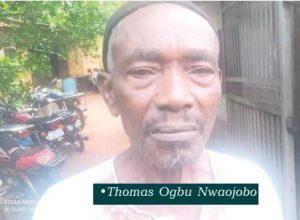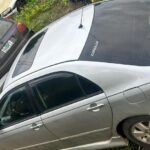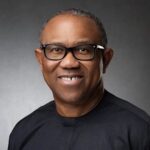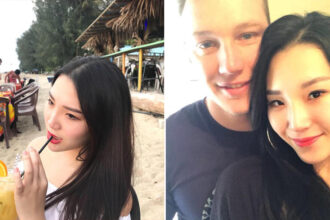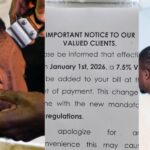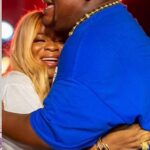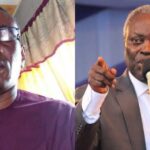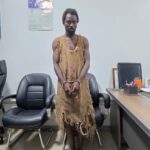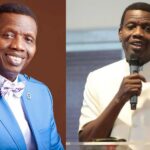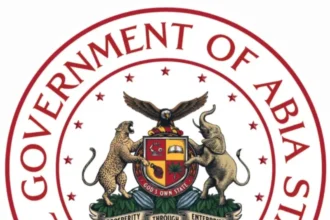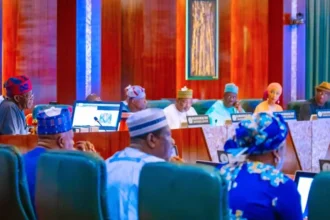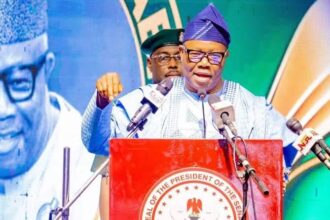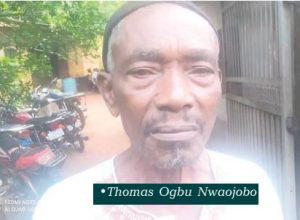
Mr. Thomas Ogbu Nwaojobo, a 78-year-old grandfather from Umuabugu Eje, Umuissai, Imufu Enugu Ezike, was captured as a young boy and “executed” alongside his elder brother, Lawrence, by Nigerian soldiers during the Nigeria–Biafra civil war in 1967.
The incident occurred at Enugu- Ezike, in the present Igboeze North Local Government Area of Enugu State.
Both Lawrence and Thomas had their hands tied behind their backs and taken to a deserted compound at Mkpamte, near Ogurute, the local government headquarters. The soldiers ordered them to lie face down before being shot point- blank, one after the other from the back. Lawrence d!ed instantly alongside other captives but Thomas survived. How?
Two days after he was shot at and taken for de@d at Mkpamte, Thomas “resurrected.” He was discovered to be alive by an old man who had gone with a hoe to bury the bodies of those executed in a shallow grave. The stench oozing from the execution ground compelled the man to get to the bodies to burry them. He saw that Thomas was alive with his two eyes wide open. The old man then united his hands. Thomas however, pleaded with the old man to be checking on him to know when he would eventually d!e, so as to bury him so that vultures would not feast on his de@d body.
Miraculously, Thomas later found his way back to his father’s house after crawling and trekking for six days and nights, without food or water. He managed to reach his father’s house when parts of his intestines had got rotten but was treated by villagers with herbs and later by a popular chemist who was also later killed by the Nigerian soldiers. Thomas, now about 78, spoke to Saturday Vanguard on his miraculous escape and life after his “execution” and “resurrection.”
My early life
“I am from Umuabugu Eje, Umuossai, in Imufu Enugu Ezike, in the present Igbo Eze North Local Government Area, Enugu State. I was baptised in 1959 as a Catholic and was told I was 10 years old then. They said I was born in 1949 or earlier but I should be about 78 years now or thereabout. We were then in the old Eastern Region. Before the Nigeria – Biafran civil war, I was an apprentice at the University town of Nsukka in Enugu State.
Local war preceding the Biafra war
“Before the civil war, there was another local war between the people of Enugu-Ezike in the present Igboeze North Local Government Area, and its border town neighbour, Ofante in Kogi State. The war preceded the civil war. During that war, the Ofante people killed our war hero, Ogbu Nwugbabe from Aji, Enugu Ezike. Ogbu Nwugbabe had what we now call ‘Odieshi’, an antidote for dane guns which was in vogue then. It was used in fighting the Ofante war. He was our war commander.
Ogbu Nwugbabe had killed an Ofante man, whose son was a Nigerian soldier. So, the son of the Ofante man returned home with his military rifle and joined his native people in the battle field and shot several of Enugu Ezike people including Ogbu Nwugbabe who, it was believed, could not be killed with any gun. They later brought his headless corpse to the then District Officer, DO, at Nsukka, where it was confirmed that the bullet that felled him was from a military rifle. Shortly after his killing, the local war ended and the Nigeria – Biafra civil war started.
Pandemonium as Nigerian soldiers overran our area
“I had then left Nsukka to collect food items from home, since I was living alone as an apprentice. I was learning auto- re-wiring and battery charging at Nsukka. However, after collecting the food items, I came out to Ogurute, the headquarters of the old Igboeze North Local Government Council to board a vehicle to Nsukka but could not get any vehicle because the civil war had started and the Nigerian soldiers had overrun our area. I then trekked to Nsukka which was a distance of over 12 kilometres. I was young then and didn’t understand the import of the soldiers at Enugu Ezike abandoning their make-shift barracks and duty posts.
However, by the time I got to Nsukka, residents of Ibagwa and Obukpa were already running into Nsukka. There was pandemonium and everybody was running helter-skelter. So, the only option was to go back to my village- Imufu, Enugu Ezike. Again, there was no vehicle to go home and I decided to trek back home.
Biafran soldiers driven out of our communities
“We were trekking back to Enugu Ezike peacefully until we got to the boundary between Nsukka and Obukpa, when we met Nigerian soldiers firing at civilians at the market. We had not reached the market, but we were watching from a far distance as Nigerian soldiers were firing at the unarmed civilians. While we were watching the soldiers firing at civilians in the market and everybody running in different directions, I saw one driver, Romanus Mamah, whose taxi, a Morris Minor saloon car, was fully loaded and he was driving towards the place where the soldiers were shooting at the civilians. I then started shouting, asking him to stop but he didn’t stop. He must have thought that we were stopping him to give us a lift.
He drove towards the soldiers and they killed him with all his passengers. Late Romanus Mamah from Umuogili Eze, was employed by the Ekere-ezes. We later went through a footpath from Nsukka to Enugu Ezike. When I returned from Nsukka, I told my people that things had changed for the worst and that we should run. I told them that Biafran soldiers had been driven out of Ogurute, Ibagwa and Obukpa respectively and that the Nigerian soldiers were heading towards Nsukka, killing innocent civilians indiscriminately.
How I was captured alongside my elder brother
“But, as we were running, I turned back and saw that Nigerian soldiers had captured my elder brother, behind me. His name was Lawrence Ogbu. Our father’s name was Ogbu Nwojobo. As a young boy, I thought I shouldn’t leave my elder brother, and I turned back and went to the soldiers, who, then, also arrested me. They arrested three of us at the same place; my elder brother Lawrence, Abu Nwugwoke and myself. However, Abu Nwugwoke spoke fluent Hausa Language, because he grew up in the north. He was also among the few Muslims in our village. He spoke Hausa to the soldiers and they released him.
So, the soldiers then took us to their station. There, they tied our hands behind our backs and ordered three soldiers to take us away and execute us, with our hands tied behind our backs. They led us to a nearby village, known as Mkpamte and asked us to lie face- down while being handcuffed. So we laid down and they shot each of us from the back, one after the other. Lawrence d!ed instantly. They shot me on the left side from the back and I fainted, after some struggling, still lying face down.
My miraculous survival after being shot
“The soldier that shot me obviously targeted my heart and ribs but missed his targets. So, I was there for two days, when a very old man who was living in the compound came with a hoe to bury each of us in shallow graves. He had buried others including Lawrence the same way. However, when it got to my turn, he discovered that I was still alive with my two eyes open. He asked me for my name and where I came from and I told him. The old man, Onoja Nwidoko, was compassionate. He then promised to make efforts to locate my parents or relatives, so that they could come and take me away.
He later came back to inform me that our home had been deserted and that the few people he saw started running when they sighted him. Those who were bold enough to wait and listen to him didn’t want to follow him to where I was lying down, dying and decaying. After narrating his efforts to locate my people and how they fled on seeing him, I pleaded with him to be checking on me to know when I would finally d!e so that he could then bury me to ensure that vultures did not feast on my corpse and he agreed. The old man untied my hands and was actually coming to check on me to know when I would d!e. When he left on the third day, I started feeling thirsty. There was a piece of broken clay pot where I saw some water which had percolated inside it, so I crawled to the broken pot and drank the water, it was mud water and I started vomiting immediately. I vomited congealed blood and water or what they described as bloody water or hemolyzed blood mixture.
After vomiting a lot of blood water, I now started feeling very hungry. So, again, I crawled towards some rotten Ugiri fruits which were falling into the compound near me. Ugiri is a species of Ogbomo fruit, whose seeds are also used in preparing ‘draw’ soup. I pierced them with my fingers and started sucking them as my teeth were shaky and couldn’t bite or eat anything.
Reunion with my family after six agonising days of trekking in the bush
“On the fourth day, I was able to stand up, but each time I stood up, I would fall down. I couldn’t recognise anywhere again. I later moved away from there but I was moving, stumbling and falling down. Somewhere at Ezillo, when it was dark, I saw a hut where some vigilante people had made a bonfire and I slept near it, with my head near the fireplace. I left there at day break and moved into the bush. While in the bush, some soldiers who were firing at an enemy plane or fighter jet which was hovering around the area passed beside me. They must have thought that I was de@d already as flies were perching all over me. Then on the fifth day, I was able to cross the road towards the Alumu Stream at Ekposhi, Enugu Ezike. I followed the road to Onicha Enugu Ezike. I was very weak, extremely tired, but I continued to trudge on.
I arrived Onicha using the moonlight and started moving towards Okata and entered Umuida. I was able to cross Apata Ahebi (now known as Umuida Road) and then entered Imufu. I reached our compound at about 10 pm on the sixth day. This was a journey that would not take a healthy person two
and a half hours on foot, but it took me six days of agony. When I reached our house, my father and his friend, Eze Nwabugu Eya from Umuoyina Nwee Village were inside, discussing in low tones. My father could not recognise my voice when I made noise at the door. He later came and saw me. He had difficulty recognising me. I was wearing a polo shirt which had changed colour. It was soaked with blood, water, dust and sand.
My father then went inside and fetched his Umatu (knife used for tapping palm wine.) The Umatu was as sharp as a razor blade. He used it to cut the polo shirt off my body, opening the wounds where the bullet entered and exited from my chest. It was horrendous. My father asked me about his first son, Lawrence and I couldn’t answer anything. After this, my father and his visitor, Eze Nwabugu Eya, took me to Obeta Nwoyiga’s house, where my mother and other relatives were taking refuge. Immediately they saw me, all of them burst into tears, screaming.
Treatment for gunshot wounds with herbs and roots
I could not eat, but soon after we reached the house, our host, Obeta Nwoyiga and Ogbu Nwa Mamah Attama went into the bush to get some herbal roots with which they gave me first aid.
They boiled some of the roots which I drank while they crushed the others in a mortar. They used the paste from the crushed roots to rub on the wounds. I was treated with the herbs for another six days, making it exactly 12 days of my agony. On that same day, my father and his host, Obeta Nwoyiga, went and fetched Ambrose Abugu, who was working as health attendant at the Enugu Ezike Maternity Home before the war, now Enugu- Ezike General Hospital. Ambrose gave me some injections inside our hut in the bush.
I had emaciated terribly, looking like a stick. You could count all my ribs. I was like a walking or a living corpse. After a month of treatment in the bush, we were advised to leave that place and move further by about three miles into the forest, which we did to avoid being detected by the enemy. This time, we moved far away from the Imufu/Ogrute axis.
Following the advice, my father put me on his bicycle and took me to Umuonu, Umuida. We slept at Umushene, a nearby village to Umuonu because we couldn’t reach Umuonu the same day.
Long journey to total recovery
“At Umuonu, my parents were advised to look for one Rufus Ugwuanyi Odanwu, then a popular chemist to treat me. When Rufus was brought, he looked at me and demanded that my father must sign an undertaking that he (my father) would not make trouble with him if I d!ed in the process on the first day of treatment. The undertaking was that if I d!ed on the first day, they would not hold him responsible but if I didn’t d!e, then it was no longer the wounds I had sustained that would kill me.
They signed the agreement. My only food then was corn flour. They usually put it in water for me to take it raw. It was like pap. After signing the undertaking, my father had no money and Rufus had charged 12 Pounds then, which was a lot of money. My father then had to approach Polycarp Eze, who later became the oldest man (Onyishi) in Imufu.
The eldest male in any village or family is the spiritual and temporal head. Polycarp gave my father 6 Pounds for the deposit as demanded by Rufus. He now used our family land and house as the collateral. Under the loan agreement, my father would not vacate his house on the land but must be paying an interest of 16 gallons of palm oil yearly until the loan was repaid. That’s the same land where I have my house. So, Rufus started treatment the same night that he was given the advance payment of 6 Pounds. He used an injection powder to treat the wound.
The short name of the injection was STREP. He mixed the powder inside water and poured it on the wound. He then soaked a cotton wool in the remaining one and used it to cover the wound. I was sitting on a wooden chair throughout the night as I couldn’t lie down on the bed made of palm fronds that were strewn together with ropes. At midnight, I had very serious pain in my chest and by the time I was trying to stand up from the chair, pus began to ooze from the wound in great quantity. The pus could fill a little bowl. Rufus came very early in the morning; before 6 am and asked my parents what happened and they narrated everything to him. He then told them that I had been healed.
Rufus told my parents that I would no longer d!e as a result of the gunshot wounds. He immediately asked for the balance of the 6 Pounds as agreed with my father. My father had to go back to Polycarp Eze to collect the money and handed it over to Rufus. Rufus repeated his claims that I had survived and that I would not d!e as a result of the gunshot wounds. After the pus came out, I felt a big relief. I then started walking steadily. I also began to eat all types of food prepared during the war.
Another raid by Nigerian soldiers
“We were at Umuonu for another four days when the Nigerian soldiers came on another raid, killing civilians and burning their thatched houses, prompting our escape to Ogboli Village again. From Ogboli, we came back to Ugwuntu in Imufu, where my father had built a hut with palm fronds. It was the place where Rufus was coming to treat my gunshot wounds. One day, he came to treat me and after the treatment, we didn’t see him again because the Nigerian soldiers visited his house and killed him. After Rufus’s sudden and tragic de@ath, I was not treated again by anybody, until the end of the war in 1970.
How I paid back the loan for my treatment
In 1969, before the end of the war, I had fully recovered, so I used my father’s bicycle to trade and earn money for repayment of the loan my father borrowed from Polycarp Eze. I repaid the 12 pounds and we also made sure that the 16 gallons of palm oil we were giving to him for the years the loan lasted stopped.
I was selling cassava and palm oil. I was carrying cassava and palm oil to our borders with Adupi, Ofante as well as Okutu in Nsukka and Umuopu to sell and would buy salt, batteries among other household items which we didn’t have in Biafra until the end of the war”.
***
Source: Vanguard

